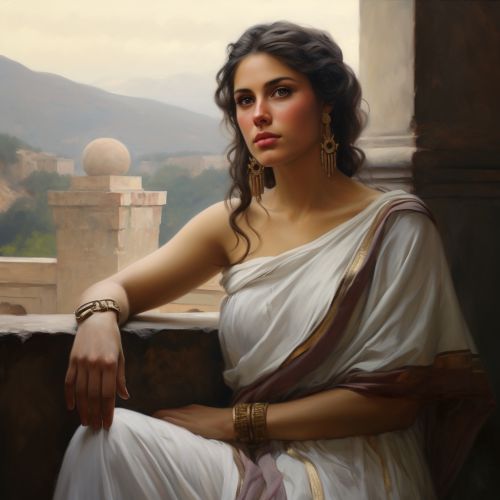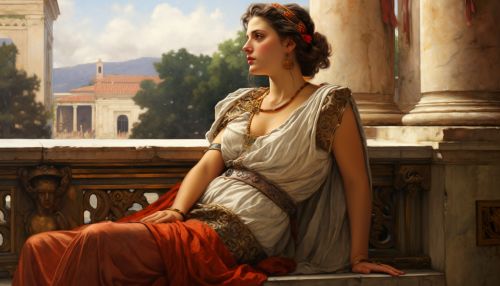Rhea Silvia
Early Life
Rhea Silvia, also known as Ilia, was a mythical figure in Roman Mythology. She was the daughter of Numitor, the rightful king of Alba Longa, an ancient city in central Italy. Numitor was overthrown by his brother Amulius, who then forced Rhea Silvia to become a Vestal Virgin, a priestess of Vesta, the goddess of the hearth. This was done to ensure that she would not bear any children who could potentially challenge his rule.


Divine Intervention and Birth of Twins
According to the legend, the god Mars, enchanted by Rhea Silvia's beauty, visited her in the temple. This divine encounter resulted in the conception of twin sons, Romulus and Remus. When Amulius discovered her pregnancy, he viewed it as a direct violation of her vow of chastity and a threat to his power.
Imprisonment and Rescue
Amulius ordered Rhea Silvia to be imprisoned and the twins to be thrown into the Tiber River. However, the servant tasked with this could not bring himself to harm the infants and instead placed them in a basket and set them adrift on the river. The twins were found by a she-wolf, who nursed them, and a woodpecker, who fed them. Both animals were sacred to Mars.
Legacy
Rhea Silvia's sons, Romulus and Remus, were later found by a shepherd named Faustulus. They grew up unaware of their royal lineage, but eventually, they learned of their true heritage and decided to overthrow Amulius and restore their grandfather, Numitor, to the throne. After accomplishing this, they set out to establish their own city, but a disagreement led Romulus to kill Remus. Romulus then became the first king of Rome, which was named after him. Thus, Rhea Silvia, through her sons, became the mother of Rome.
Interpretation and Symbolism
Rhea Silvia is often depicted as a chaste maiden who becomes the victim of a powerful god's desire. Her story is symbolic of the divine intervention in the creation of Rome and the divine lineage of its founders. As a Vestal Virgin, she represented purity and devotion, while her forced motherhood symbolized the power of destiny and the gods' will.
In Art and Literature
Rhea Silvia's story has been a popular subject in art and literature throughout history. She is often portrayed in the moment of her divine encounter with Mars or as a distressed mother when her sons are taken away. Her image is a powerful symbol of Roman mythology and the legendary origins of Rome.
